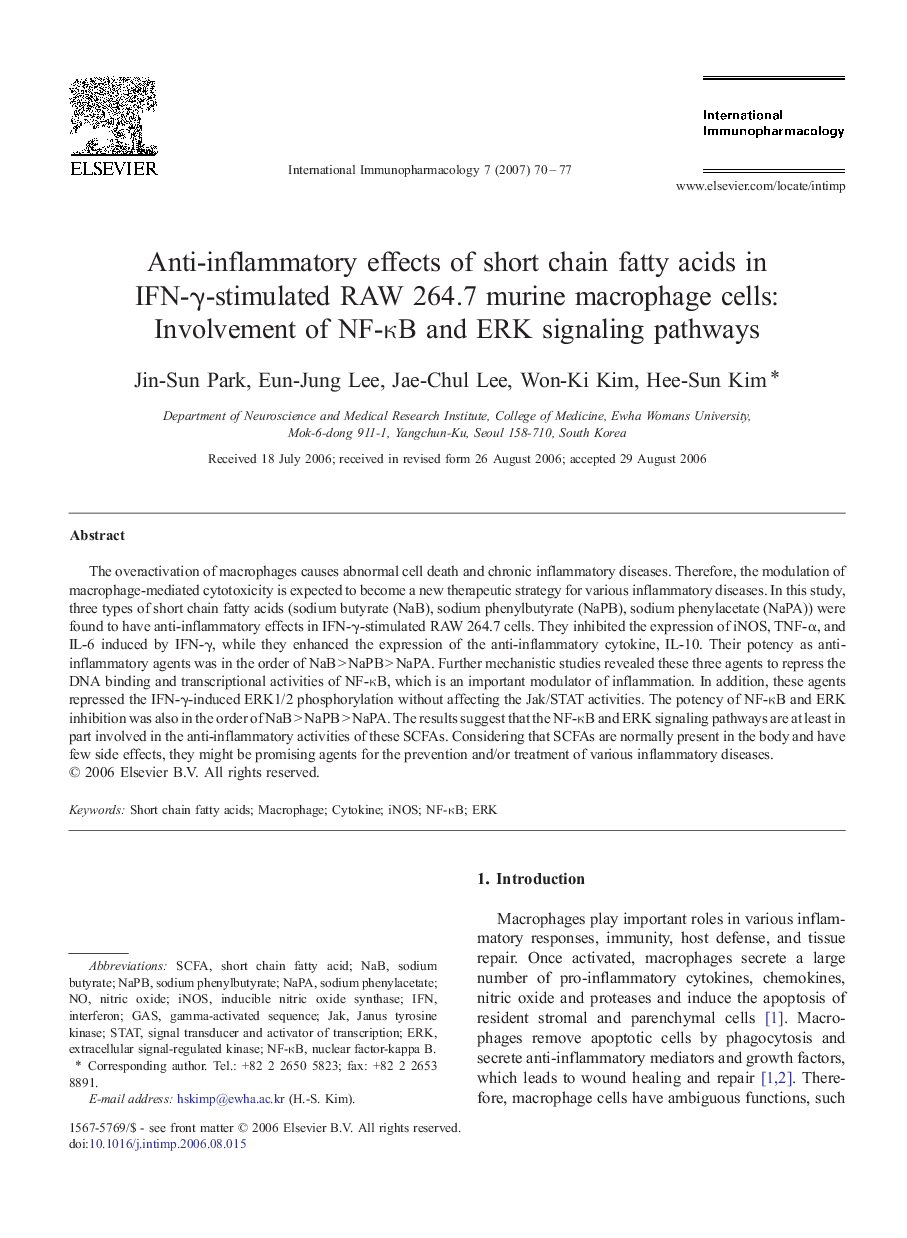| Article ID | Journal | Published Year | Pages | File Type |
|---|---|---|---|---|
| 2542565 | International Immunopharmacology | 2007 | 8 Pages |
The overactivation of macrophages causes abnormal cell death and chronic inflammatory diseases. Therefore, the modulation of macrophage-mediated cytotoxicity is expected to become a new therapeutic strategy for various inflammatory diseases. In this study, three types of short chain fatty acids (sodium butyrate (NaB), sodium phenylbutyrate (NaPB), sodium phenylacetate (NaPA)) were found to have anti-inflammatory effects in IFN-γ-stimulated RAW 264.7 cells. They inhibited the expression of iNOS, TNF-α, and IL-6 induced by IFN-γ, while they enhanced the expression of the anti-inflammatory cytokine, IL-10. Their potency as anti-inflammatory agents was in the order of NaB > NaPB > NaPA. Further mechanistic studies revealed these three agents to repress the DNA binding and transcriptional activities of NF-κB, which is an important modulator of inflammation. In addition, these agents repressed the IFN-γ-induced ERK1/2 phosphorylation without affecting the Jak/STAT activities. The potency of NF-κB and ERK inhibition was also in the order of NaB > NaPB > NaPA. The results suggest that the NF-κB and ERK signaling pathways are at least in part involved in the anti-inflammatory activities of these SCFAs. Considering that SCFAs are normally present in the body and have few side effects, they might be promising agents for the prevention and/or treatment of various inflammatory diseases.
